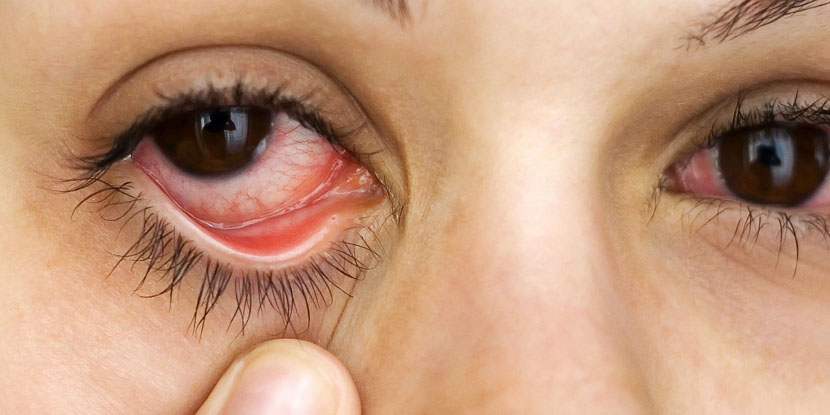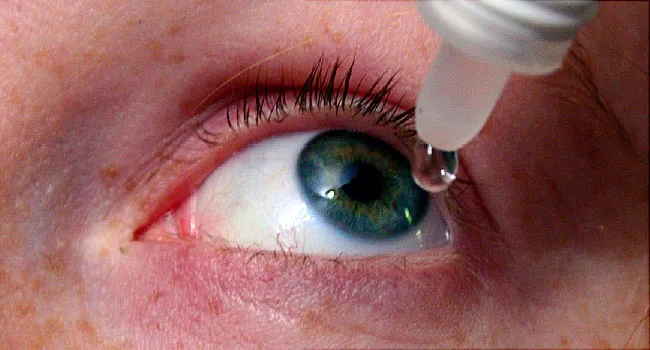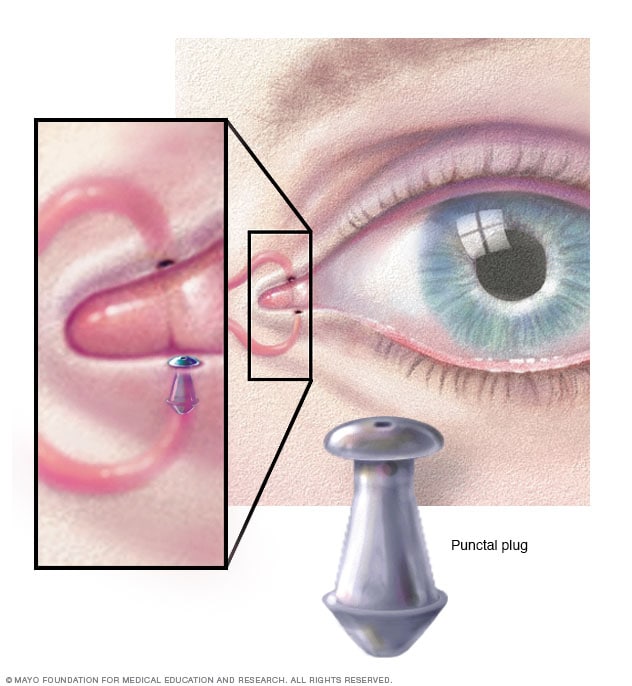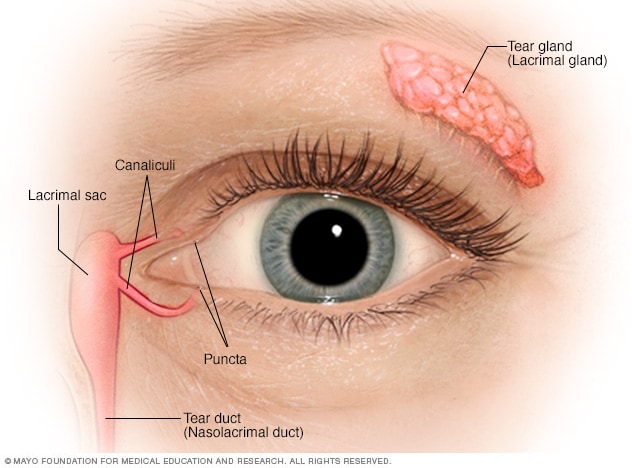Dry eyes
Dry eyes is a common condition that occurs when your tears aren't able to provide adequate lubrication for your eyes.
Dry eyes may occur if you don't produce enough tears or if you produce poor-quality tears.

Dry eyes may occur if you don't produce enough tears or if you produce poor-quality tears.
Symptoms
Signs and symptoms, which usually affect both eyes, may include:
- A stinging, burning or scratchy sensation in your eyes
- Stringy mucus in or around your eyes
- Sensitivity to light
- Eye redness
- A sensation of having something in your eyes
- Difficulty wearing contact lenses
- Difficulty with nighttime driving
- Watery eyes, which is the body's response to the irritation of dry eyes
- Blurred vision or eye
Decreased tear production
- Aging
- Certain medical conditions, including diabetes, rheumatoid arthritis, lupus, scleroderma, Sjogren's syndrome, thyroid disorders and vitamin A deficiency
- Certain medications, including antihistamines, decongestants, hormone replacement therapy, antidepressants, and drugs for high blood pressure, acne, birth control and Parkinson's disease
- Laser eye surgery
- Tear gland damage from inflammation or radiation
Increased tear evaporation
Imbalance in tear composition

Inflammation: meibomitis, blepharitis, rosacea, skin disorders.
Complications
- Eye infections.
- Damage to the surface of your eyes.
- Decreased quality of life.
Prevention / Treatment
- Avoid air blowing in your eyes.
- Add moisture to the air. In winter, a humidifier can add moisture to dry indoor air.
- Consider wearing wraparound sunglasses or other protective eyewear.
- Take eye breaks during long tasks.
- Be aware of your environment.
- Position your computer screen below eye level.
- Stop smoking and avoid smoke.
- Use artificial tears regularly.




留言
張貼留言